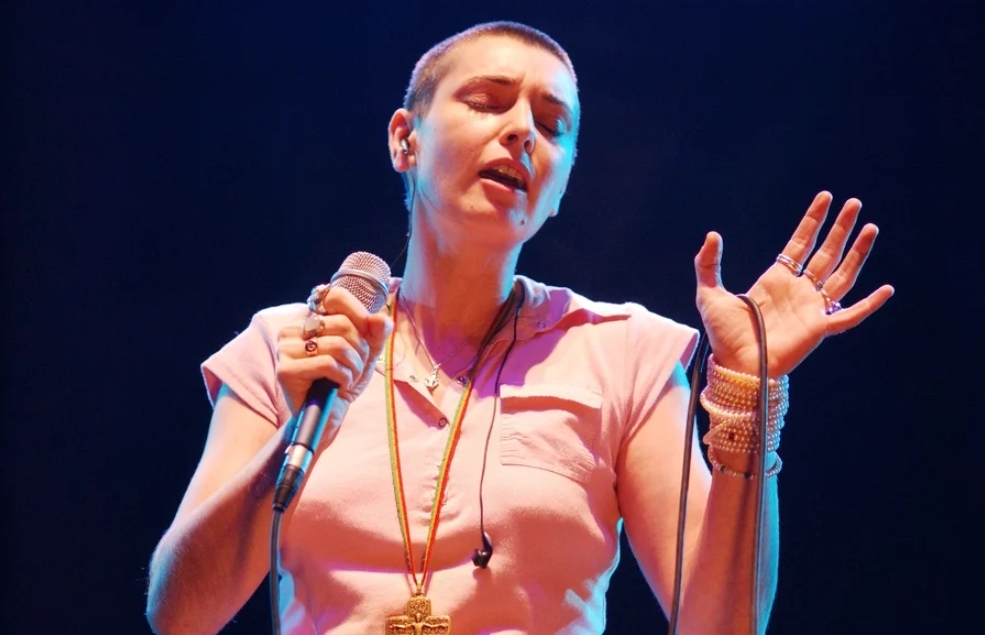Sinéad O'Connor, the Irish vocalist known for her serious and wonderful voice, her political convictions, and the individual tumult that overwhelmed her later years, has kicked the bucket. She was 56 years old.
O'Connor's recording of "Nothing Analyses 2 U" was one of the greatest hits of the mid-1990s. Her passing was reported by her loved ones. The reason and date of her passing were not revealed. The assertion said: "It is with incredible misery that we report the death of our adored Sinéad. Her loved ones are crushed and have mentioned protection at this extremely challenging time."
Elective radio in the last part of the 1980s rang with the voices of female artists who overcame business presumptions of what ladies ought to resemble and how they ought to sound. However, even in a group that included Tracy Chapman, Laurie Anderson, and the Indigo Young Ladies, O'Connor stuck out.
The cover to her most memorable collection, delivered in 1987, was so striking—nnot in light of her delightful face. It was her head, uncovered as an eaglet, and her wrists locked protectively across her heart. The collection's title, The Lion and the Cobra, alludes to a section from Hymn 91 about devotees and the power and versatility of their confidence. What's more, all through her initial life, Sinéad O'Connor was versatile.
"I encountered youth in a genuinely unsafe situation, with my mother being the offender," O'Connor told NPR in 2014. "Such a great deal of youngster misuse is tied in with being voiceless, and it's a magnificently mending thing to simply utter sounds."
O'Connor began uttering sounds in a permanent place to stay for adolescent reprobates after a youth spent getting thrown out of Catholic schools and busted, over and over, for shoplifting. However, a religious woman gave her a guitar, and she started to sing in the city of Dublin, and afterward, a well-known Irish band brought In Tua Nua.
O'Connor came to the attention of U2's guitarist The Edge, and she got herself endorsed for the Ensign/Chrysalis mark. Her second studio collection, I Don't Need What I Haven't Got, went twofold platinum in 1990, halfway due to a hit love melody composed by Ruler: "Nothing Looks at 2 U."
I Don't Need What I Haven't Got was a refining of O'Connor's devout feeling for music and her wrath over friendly unfairness. She dismissed its four Grammy selections as excessively businesslike and, as would be natural for her, "for obliterating mankind." She was prohibited from Another Jersey field when she would not sing "The Star-Radiant Standard" for its verses praising bombs rushing in the air.
Rock pundit Bill Wyman says O'Connor had a place with a glad Irish practise of opposing the laid-out request. "You understand she's dependably on people being alluded to, the uncovered, and the frail," he observes.
In 1992, at the height of her popularity, Sinéad O'Connor showed up on Saturday Night Live. In her exhibition, she raised her voice against prejudice and child misuse. There was dead silence when she finished the melody, a form of Sway Marley's "Battle," by tearing up an image of then-Pope John Paul II.
What continued in the media was an aggregate wail of shock. It overwhelmed a farsighted dissent against maltreatment in the Catholic Church. Years after the fact, in 2010, O'Connor told NPR she'd known precisely what to anticipate.
"It was terrific, frankly," she said. "By the day's end, I understood how people would answer. I realised there would be some inconvenience. I was very ready to acknowledge that. As far as I might be concerned, it was more vital that I perceived what I will call the Essence of God."
Exciting Music's Joan of Circular, as she was called, turned out to be progressively unpredictable in her convictions. O'Connor was a women's activist, then she wasn't. She upheld the Irish Conservative Armed Force until she didn't. She was appointed a Catholic cleric by a maverick organisation. She converted completely to Islam. She went from chastity to oversharing about her preferences for sex. She changed her name a few times, calling herself Shuhada' Sadaqat after her transformation; however, she kept on delivering music under her original name. Also, her music went eccentrically, from New Age to drama to reggae.
Despite the fact that O'Connor never delivered another prominent hit, tabloids continued to cover her. Her four relationships, four separations, and four youngsters; her fights with superstars, going throughout the years from Plain Sinatra to Miley Cyrus
"I think individuals lost regard for her validity," says Bill Wyman. "Also, her later records simply aren't as much tomfoolery. They're inadequately delivered, and they're odd. They're only not as pleasant."
In later years, O'Connor took to Facebook and Twitter to expound on her battle with dysfunctional behaviour. She raised self-destruction, and she endeavoured it at least once or twice.
In the event that you grew up during the 1980s, one melody you heard again and again from Sinéad O'Connor's most memorable collection was "Never Goes Downhill." If, by some stroke of good luck, some way or another, she had gone downhill as capably as her most grounded tunes,
After her demise, the state head of Ireland, Leo Varadkar, made an assertion via virtual entertainment, saying: "Truly sorry to learn of the death of Sinéad O'Connor. Her music was adored all over the planet, and her ability was unequalled and outstanding. Feelings to her family, her colleagues, and all who loved her music Ar dheis Dé go Raibh a hAnam [may her soul rest at the right hand of God]."





0 Comments